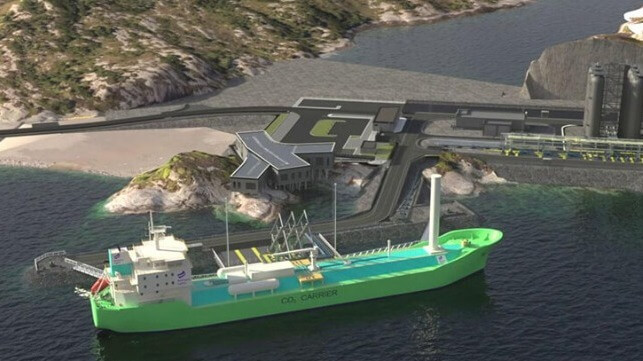Yara Signs Landmark Deal for Offshore CO2 Storage

Norwegian fertilizer manufacturer Yara has signed the world's first cross-border CO2 transport and storage deal with Northern Lights, the Norwegian offshore carbon storage project. Both entities are based in Norway, but the transport will be cross-border, delivering liquefied CO2 by ship from a Yara plant in the Netherlands to the Northern Lights injection facility.
From early 2025, 800,000 tonnes of pure CO2 will be captured at the Yara Sluiskil plant in the Netherlands, then compressed, liquefied and transported to the Northern Lights well off the coast of Øygarden.
Northern Lights hopes that the first-of-a-kind contract will set a standard for other industrial emitters in Europe who want to look at offshore CO2 storage.
“Yara is our first commercial customer, filling our available capacity in Northern Lights. With this we are establishing a market for transport and storage of CO2. From early 2025 we will be shipping the first tonnes of CO2 from the Netherlands to Norway. This will demonstrate that CCS is a climate tool for Europe," said Børre Jacobsen, the managing director of Northern Lights.

that matters most
Get the latest maritime news delivered to your inbox daily.
Northern Lights is the transport and storage part of Norway's Longship project, which is 80 percent funded by the Norwegian government. As part of the funding agreement, Northern Lights has to develop a commercial business model and offer its service to the rest of Europe. The company is a JV, owned equally by Equinor, Shell and TotalEnergies.
Yara produces two million tonnes of ammonia per year, making it one of the largest manufacturers in the world. Conventional ammonia is a carbon-intensive product made with natural gas, and Yara's plant in Heroya is one of the largest point-source emitters in Norway; the company is planning an electrification project to transition to the plant to a zero-emissions future, eliminating about 800,000 tonnes of CO2 emissions per year.
